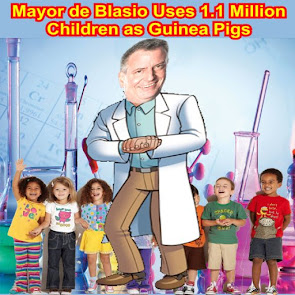Leadership committed to excellence and social justice | Cloaking Inequity
LEADERSHIP COMMITTED TO EXCELLENCE AND SOCIAL JUSTICE
The semester has started! In the midst of twin pandemics of racism and Covid-19, we must lead and be committed to excellence and social justice. We must demand that is of our educational leaders and our policymakers! I recently gave an opening address to the faculty and staff at the UK College of Education. Here are the thoughts I shared:
I have been honored to serve the faculty, staff, students and alumni of the College of Education for nearly 14 months.
Dickens once said, “It was the best of times, it was the worst of times, it was the age of wisdom, it was the age of foolishness, it was the epoch of belief, it was the epoch of incredulity” Despite the best of times in term of recognition by our peers and the education community, we are dealing with the twin pandemics of Covid and racism.
To address twin pandemics of Covid and racism that rose to the fore that past several months, our courage, our tenacity, our intellectual curiosity, and our compassion has come to the fore.
Back in 2011, I remember buying and watching the movie Contagion. We are living in a real life plot that is eerily similar to a movie. It’s an unprecedented time not only for our political leaders, but also our academic leaders.
We spent the entire summer in design with remodeling our buildings, modifying our courses and physically reconfiguring classrooms.
Your college leaders spent many, many hours seeking to safely and responsibly open this week based on university guidelines. We are doing our best to follow their guidelines to ensure physical and emotional safety for our community.
Our values demand that we keep our community safe and we have sought to innovate out of the problems that Covid has presented us.
We are learning to work and teach in entirely different ways. We have all had to change our work and work differently.
We aspire to be the most innovative and nimble leadership team not only on campus, but in our state and nation. During times of crisis, we often see what people are made of. I heard in a political speech recently that commitment resides in every heart — and ours is fierce and clear.
The aforementioned staff and faculty attributes were also highly visible this summer, during the many months of racial unrest in our country. Many in the college galvanized to brainstorm what we can do toward more racial harmony, here on campus and in our communities.
But your college was preparing for the moment before it arrived. For a year, we had been working behind the scenes to create a first of its kind Education and Civil Rights Initiative with the national NAACP, the nation’s largest and oldest civil rights organization. When it was announced in the Washington Post, the UK College of Education officially became the center of the national discourse via this groundbreaking collaboration. We are incredibly grateful to have Greg Vincent and Sarah Lacour leading the work. We are also having discussion with other nationally renowned scholars who have reached out and would like to join the work. We have taken a variety of other steps to address the pandemic of racism. We held a symposium series, named the College’s first Associate Dean of Diversity and Student Success, create a social justice student advisory committee, and have sought to integrate the Inclusiveness Committee in new ways. Furthermore, last fall I published a law review article that examined faculty diversity across higher education. We found that higher education has failed to move the needle appreciably. But not at UK. This summer we announced the diverse, dignified, dynamic dozen— 2/3 of our hires are people of color and 1/3 of our hires are African American— 100% are game changers for their field. I submit to you that the College of Education is leading in UK’s efforts to address the racism pandemic. Candace Hargons is conducting anti-racism training for the leadership of the University. Dr Steven Watkins is leading the new $10 million UNITE initiative focused on research for historically marginalized communities. The administration and other deans have looked to us to lead in this moment… we will. The twin pandemics are wearing on us. We are fortunate that most of the faculty hiring work was completed before the COVID hiring freeze. However, that didn’t save us from the loss of staff from two departments and shortages in two others. So we spent 6 weeks brainstorming and listening to our community on how to address the dire staffing needs created by the pandemic. At the end of that process, a taskforce of 4 staff and 3 faculty created a team model with a fiscal team, academic team and Department Support Specialists to prototype this year.
We understand that the world is rapidly evolving and coming at us from all angles. Let’s have each other back.
I also want to say that I learned the news this week about one of our own. As a community we need to step up and support Justin Bathon and his family in this challenging time. We are family and family cares for each other. We continue to be grateful for you, our alumni and friends. Your commitment, tenacity, and generosity has made it possible for us to continue our important mission— impact for the children and families in our Commonwealth, nation and beyond. We WILL leave a legacy.
Leadership committed to excellence and social justice | Cloaking Inequity



































